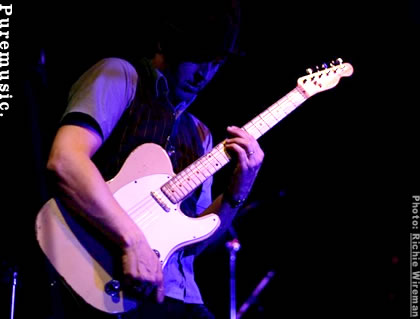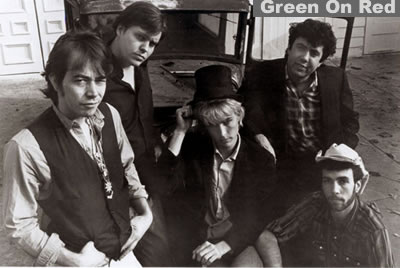
A Conversation with Chuck Prophet
Puremusic: Hi, Chuck. This is Frank Goodman at Puremusic in Nashville, Tennessee, here.
Chuck Prophet: Hi Frank. How are you doing?
PM: I'm good, man. You got a couple minutes for me?
CP: Absolutely, my man.
PM: Oh, you're too kind. What kind of a day do I find you having in San Francisco today?
CP: Well, it's pretty clear out there. But I mean, for me, I'm just laying around because it's kind of the first day off that I've had in recent memory.
PM: Yeah, when you hit it, you hit it very hard behind every record.
CP: Well, I give it the college try at least once. I'm stubborn.
PM: [laughs] Well, it takes at least that, I think. As popular a figure as you are, your story is not too easy to glean, or to unearth. I hope you don't mind if we do a little of beginning at the beguine because I don't know what kind of a home you grew up in. I just know it was Orange County-ish. But what kind of an atmosphere was it, especially musically?
CP: Well, there wasn't a lot of music in my house, particularly, unless in terms of records--we all had records, I suppose. I was born in Whittier, and kind of grew up there, sort of on the edge of the Orange curtain--
PM: [laughs]
CP: I guess East L.A. County into the Orange curtain. And I just grew up in a time and place where if you shook a tree, five guitar players would fall out.
PM: Right.
CP: Everybody played guitar. My sister had a guitar, and she had tried to learn some songs at a Catholic youth camp or something. And I started playing that guitar, and saved up for a Stratocaster that I bought on Sunset Boulevard, and that's that.
PM: But in all the neighborhoods that we grew up in, playing guitar--it always seemed that there was one kid or two kids that just seemed to get it and get on it right away. Were you that kid?
CP: Not really.
PM: Just kind of cruised along with it.
CP: Yeah. I was probably the fifth or sixth best guitar player in my neighborhood.
PM: Right. [laughs]
CP: Or on my block, probably.

PM: When Green On Red was big in the '80s, I guess, I was working up in Petaluma at Mesa Boogie and managing sales up there. So I was aware of the group. I never got to see them then. But I didn't know until much more recently how many records they cut, that they cut eleven, and how big they got in Europe and stuff. That was a very significant band. Is that how it feels now to you, or--
CP: The way it feels to me is that everybody has got a past, and it's no different.
PM: How did that reunion tour go that you did not long ago? Was that fun, or was that just a nightmare?
CP: Oh, no, it was hardly a nightmare.
[laughter]
CP: I think we were all pleasantly surprised by how much fun it was.
PM: Yeah. Do you enjoy playing guitar in like a different construct than in your own band?
CP: I suppose.
PM: Or maybe it's not that different, you know?
CP: Well, I suppose when you're singing, your playing tends to punctuate what you're singing. But I like it all.
PM: Yeah.
I'd love to hear anything about the songwriting episode with Alejandro Escovedo. What kind of a character is he up close and personal, and to write with?
CP: Well, I've known Al for a long time, and I suppose what makes him different than a lot of people, he just has a tremendous amount of faith.
PM: Wow.
CP: And you put two people in a room, and the idea is to pull a song out of the air, it requires some faith, and Al's got a lot. So we tell stories, and sometimes a song just kind of drips off the end.
And if that doesn't work, we just lay on the carpet in the dark and listen to Mott The Hoople records.
PM: [laughs] continue
print
(pdf) listen to clips
puremusic home